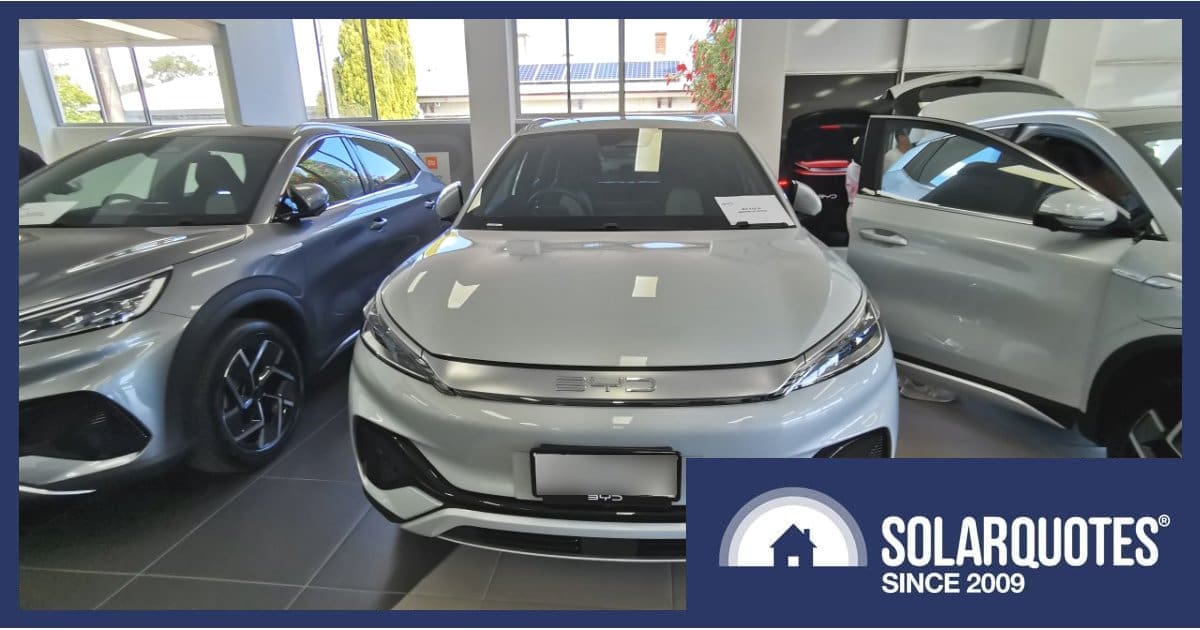
When the QLD Government announced on Saturday morning that its Zero Emission Vehicle (ZEV) Rebate Scheme was ending soon, it wasn’t kidding. Applications closed at 11.59 pm last night.
In March 2022, then-Premier Annastacia Palaszczuk announced a $3,000 subsidy for battery electric vehicles (BEVs) with a value up to $58,000. Then in 2023, the EV rebate was increased from $3,000 to $6,000 for households with a gross income of $180,000 or less. Additionally, delivery charges were excluded from the maximum vehicle value, which was also increased to $68,000.
The $45 million scheme was envisioned to run for three years, but the cupboard is now bare after having provided more than 10,000 rebates. The Miles Government notes EV registrations have increased fourfold since the start of the scheme when there were 9,100 vehicles registered, to more than 46,000 as at the end of July this year.
That’s still a drop in the bucket – electric vehicles only make up 1% of Queensland’s total car fleet; compared to 0.2% at the scheme’s commencement. While there’s a long way to go to achieve the state’s ZEV Strategy target of 50% of new passenger vehicles sales by 2030, in the twelve months ending June 2024 ZEVs climbed to 8.5% of total new passenger vehicle sales, compared to 1.7% in 2022.
“The success of the scheme demonstrates Queensland Government’s commitment towards encouraging cleaner, greener transport modes and supporting the transition to EVs, while assisting Queenslanders with cost-of-living pressures by reducing the upfront costs of purchasing a new eligible EV,” said QLD Transport and Main Roads Minister Bart Mellish.
Minister Ellish says the government continues to support EV drivers with “low” vehicle registration fees and duties, and investing in public fast EV charging infrastructure.
Looking at Queensland registration fees as at July 2023, the cost to register an EV with a maximum tare (unladen) weight of 2,109 kg was $716.05. Registration for a maximum 1,275 kg tare 4-cyclinder vehicle cost $793.10, and in the 1,622 kg tare 6-cylinder car category, $1,003.45.
EV Rebates Elsewhere In Australia
There’s still a $3,500 rebate in Western Australia for new electric vehicles up to a maximum dutiable value of $70,000. As at the end of May this year, 6,821 rebates had been granted, for a total of $23,873,500.
That rebate should continue for a while. Originally, it was to be available to the first 10,000 successful applications or for three years (whichever came first); ending Saturday 10 May 2025. But the application cap was removed, and the WA Government announced an additional $5.2 million investment as part of the 2024-25 State Budget.
In Tasmania, there’s a $2,000 subsidy on EVs until funding runs out – which could be quite soon. As at 2 September 2024, there were 21 rebates available. ReCFIT says there may be some funding still available where applicants have not gone ahead with an EV purchase; and those rebates will be reallocated every Tuesday.
… and that’s it.
Other states that *had* EV rebates:
- Victoria: a $3,000 subsidy on vehicles with a dutiable value under $68,740. This ended in June 2023 after more than 10,000 subsidies were granted.
- New South Wales: A $3,000 rebate for electric vehicles with a dutiable value of less than $68,750 ended on the 31st of December 2023. There were to be 25,000 rebates available, but it seems the total number issued was probably closer to 10,000 than 25,000.
- South Australia: SA’s $3,000 EV subsidy ($68,750 price cap on vehicles) ended on the 1st of January 2024. Around 2,500 subsidies were reportedly paid out although 7,000 were budgeted for.
Most states and territories still offer some type of EV-related sweetener such as subsidies for home EV chargers and/or free or discounted registration. Summaries can be found here; along with details of solar and home battery incentives in each state.

 RSS - Posts
RSS - Posts



Id personally prefer the money spent on proper locations and reliability based subsidies for public charging services.
Totally agreed !!!, and part of the money to be spent on comprehensive directions to the chargers. More than twice I have failed to find charging booths inside or near to super markets and to drive off – although they were reportedly available.
The figures need checking. I set out a few issues but my comment has disappeared.
Hi Ross,
What figures were they?
ACT has a stamp duty exemption on EV’s.
Not a rebate but a significant saving.